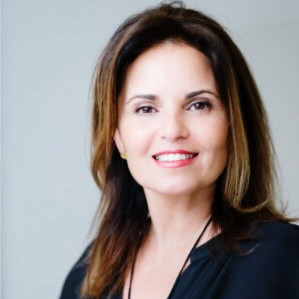Seed Capital
1Mby1M Virtual Accelerator Investor Forum: With Shuly Galili of UpWest Labs (Part 1)

Responding to a popular request, we are now sharing transcripts of our investor podcast interviews in this new series. The following interview with Shuly Galili was recorded in October 2018.
Shuly Galili, Founding Partner, UpWest Labs, talks to us about pre-seed and seed investments in the Israel – Silicon Valley corridor.
Sramana Mitra: Tell us a little bit about yourself as well as UpWest Labs. Introduce our audience to your work.
Shuly Galili: I co-founded UpWest Labs in 2012. It’s been almost seven years. We’ve been building a platform and a fund to invest and support very early stage pre-seed and seed founders, primarily out of Israel. We are based in Palo Alto and are invested in over 70 companies. We’re on our third fund where we are heavily focused on several industries.
>>>
1Mby1M Virtual Accelerator Investor Forum: With Miriam Rivera of Ulu Ventures (Part 5)
Sramana Mitra: What did they come to you with?
Miriam Rivera: This was three people. They had developed the prototypes of these devices. Part of that was that they had already spent several years in this non-profit version pursuing this goal of developing cheaper devices that could be used in contexts where technology wasn’t being used. They have shown tremendous commitment to what they were doing and in creating affordable and quick-to-produce devices. That was something that could reduce the cost of creating Internet of Things device by an order of magnitude, and also make it happen in months as opposed to a year.
Sramana Mitra: Are you chasing unicorns? >>>
1Mby1M Virtual Accelerator Investor Forum: With Miriam Rivera of Ulu Ventures (Part 4)
Miriam Rivera: The other company was run by men and this was run by a mom. I think she really related to the issues. She related to the customers’ needs. She understood the importance of safety and reliability, and understood that for the parents, reliability was more important than the price.
They tend to have a more stable set of drivers. They tend to pay a bigger fraction than other transportation companies. They try to develop a set of >>>
1Mby1M Virtual Accelerator Investor Forum: With Miriam Rivera of Ulu Ventures (Part 3)
Sramana Mitra: What about sector? You said you only do enterprise software. Could you elaborate on what you like to invest? What trends are you following and are excited about?
Miriam Rivera: A lot of our companies are traditional SaaS companies, but many of them were also invested in Internet of Things and AI. Smart data is one of the big focus areas of our investing. Fintech and education technology are some other focus areas. What differentiate us is that we are selling into an enterprise customer. We do have some companies that are selling it to small enterprise, but that’s more unusual. We also consider enterprise to be a little different than the traditional Fortune or Global 2000 type of companies. >>>
1Mby1M Virtual Accelerator Investor Forum: With Devdutt Yellurkar of CRV (Part 2)
Sramana Mitra: I’ve known George Zachary for a long time. When I started One Million by One Million, he was one of the people who wanted to invest. I’ve had interactions with CRV for many years. What is the current fund size?
Devdutt Yellurkar: Fund 17 is a $600 million fund.
Sramana Mitra: What check sizes are you writing these days?
Devdutt Yellurkar: Our focus hasn’t changed. We still do early stage. We do seed and Series A. Check size these days goes from $1.5 million to $7 million. That’s a range in which these projects are coming in. Sometimes, we do Series B. Those are $10 million to $15 million. Of late, we >>>
1Mby1M Virtual Accelerator Investor Forum: With Miriam Rivera of Ulu Ventures (Part 2)
Sramana Mitra: What you said about diversity is music to our ears because that’s our community. We’re very happy to see that that’s what you are doing and that people are paying attention to this issue a lot more right now. That’s progress for sure. Let me ask you a little bit more about the stage.
In the late 90’s, I did three startups in a row. At that time, it was seed and Series A. Now, it’s friends and family, pre-seed, seed, post-seed, pre-Series A, small Series A, and traditional Series A. The spectrum has segmented. Where do you see yourself in that continuum?
Miriam Rivera: We end up everywhere, even up to a traditional Series A. You’re right. The funny thing is a lot of people consider themselves >>>
1Mby1M Virtual Accelerator Investor Forum: With Devdutt Yellurkar of CRV (Part 1)

Responding to a popular request, we are now sharing transcripts of our investor podcast interviews in this new series. The following interview with Devdutt Yellurkar was recorded in July 2018.
Devdutt Yellurkar, General Partner at CRV, discussed his investment principles. It was an excellent discussion!
Sramana Mitra: The first thing I’d like to do is introduce our audience to yourself as well as to CRV’s current activities, philosophy, and investment thesis. Let’s start there.
Devdutt Yellurkar: I’m still masquerading as a venture capitalist after only nine years into this gig. I got into this after a two-year sabbatical in India. >>>
1Mby1M Virtual Accelerator Investor Forum: With Miriam Rivera of Ulu Ventures (Part 1)

Responding to a popular request, we are now sharing transcripts of our investor podcast interviews in this new series. The following interview with Miriam Rivera was recorded in October 2018.
Miriam Rivera, Partner at Ulu Ventures, a firm committed to diversity as its core investment philosophy.
Sramana Mitra: In order to introduce you to our audience, I think the first place we would like to start is to explain Ulu Ventures and your background. Tell us about your investing focus. How big is the fund? What kind of investments do you like to make? Let’s get to know one another? >>>
